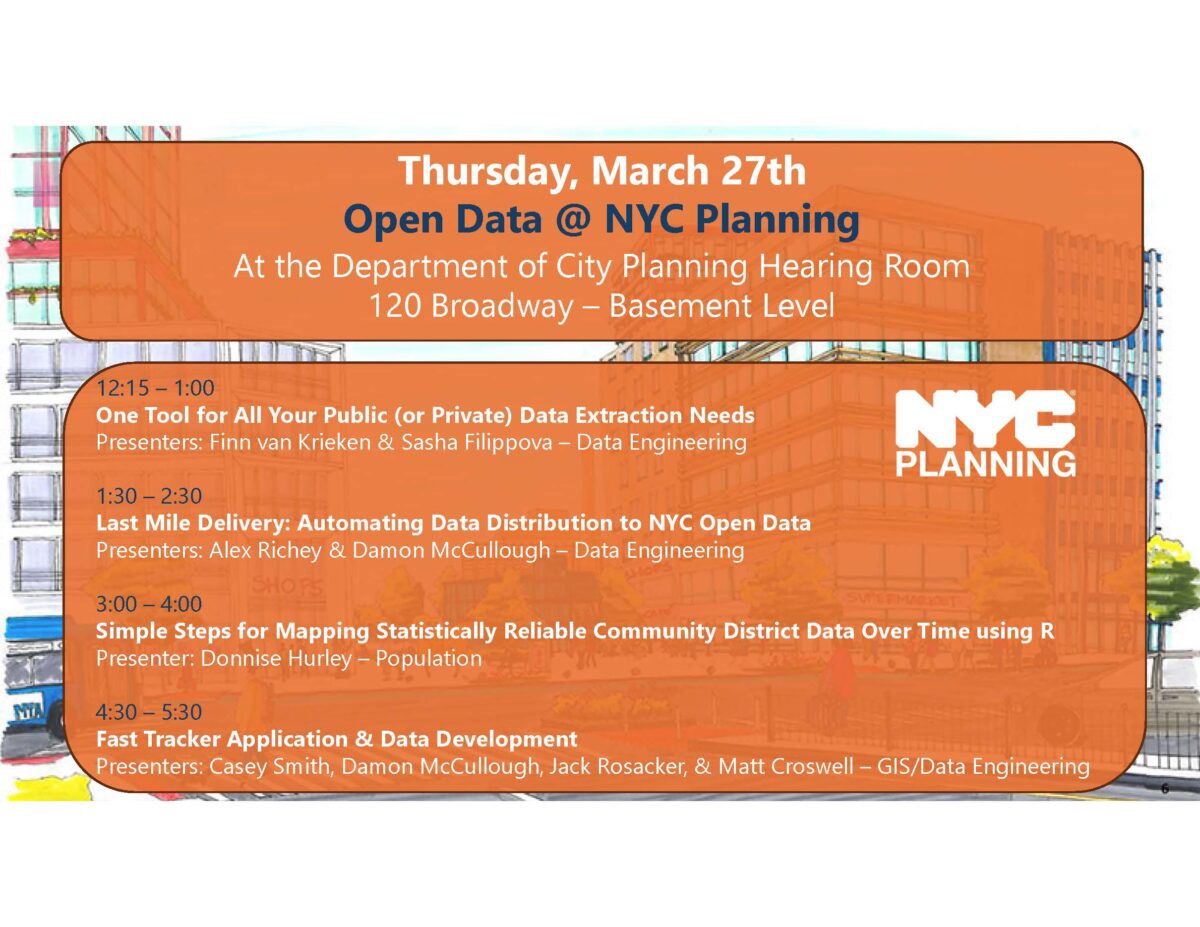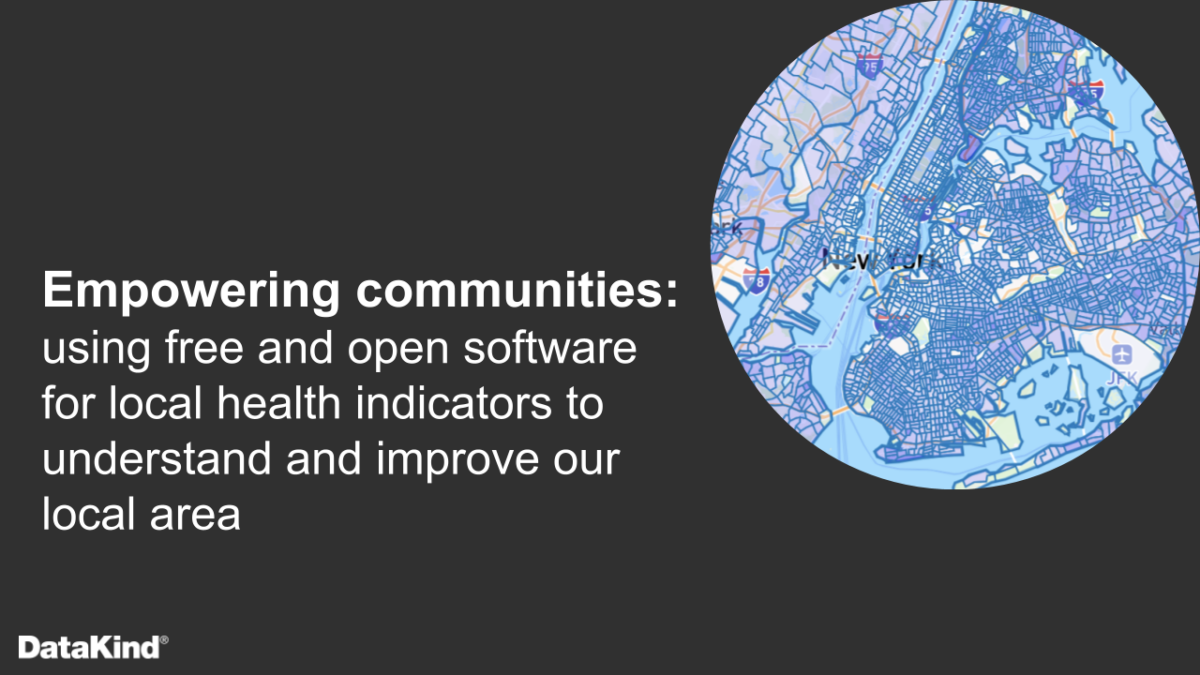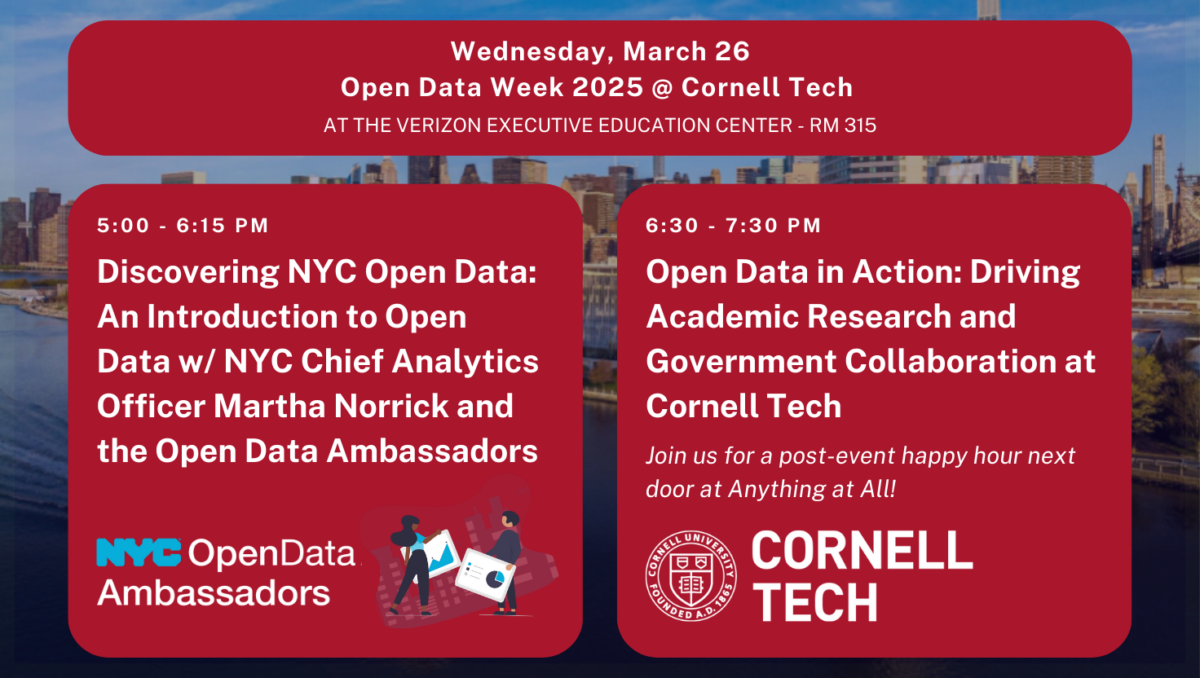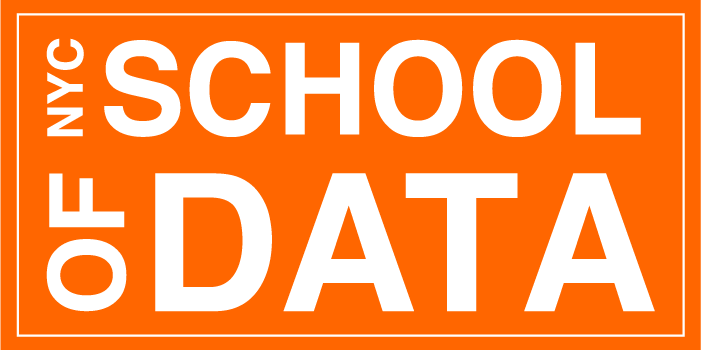Open Data is rich, but can be overwhelming. Creating succinct, focused measures from Open Data allows New Yorkers quickly see how things are going and better understand complex issues.
The NYC Comptroller’s office recently released two new data dashboards that use Open Data resources to (1) track NYC Agency performance (https://comptroller.nyc.gov/services/for-the-public/measuring-nyc-government-performance/overview/) and (2) chart homelessness and eviction challenges facing New Yorkers (https://comptroller.nyc.gov/services/for-the-public/charting-homelessness-in-nyc/overview/).
This in-depth demonstration will:
- Detail the information available on these two dashboards:
- Measures of how key City agencies are delivering for New Yorkers
- Details on the populations experiencing homelessness, facing eviction, and actions by the City to prevent eviction and move individuals out of shelter into permanent housing.
- Show how we endeavored to tell full, meaningful stories of how City agencies are doing and the challenges New Yorkers face, relying only on public Open Data.
- How to create relevant, informative measures from raw source data
- How to combine and overlay data sources to add depth to a complex topic like housing and homelessness
- Facing limitations of the data available
- Give an overview of the technical tools to build dashboard views on Open Data sources
- Querying Open Data data and metadata
- Connecting data to PowerBI and custom tools
This session is a chance for researchers and Open Data users to get an in-depth understanding of the data available on these new dashboard products, learn how to design rich dashboards that contribute to understanding on complex policy issues, and get technical pointers for accessing Open Data.





